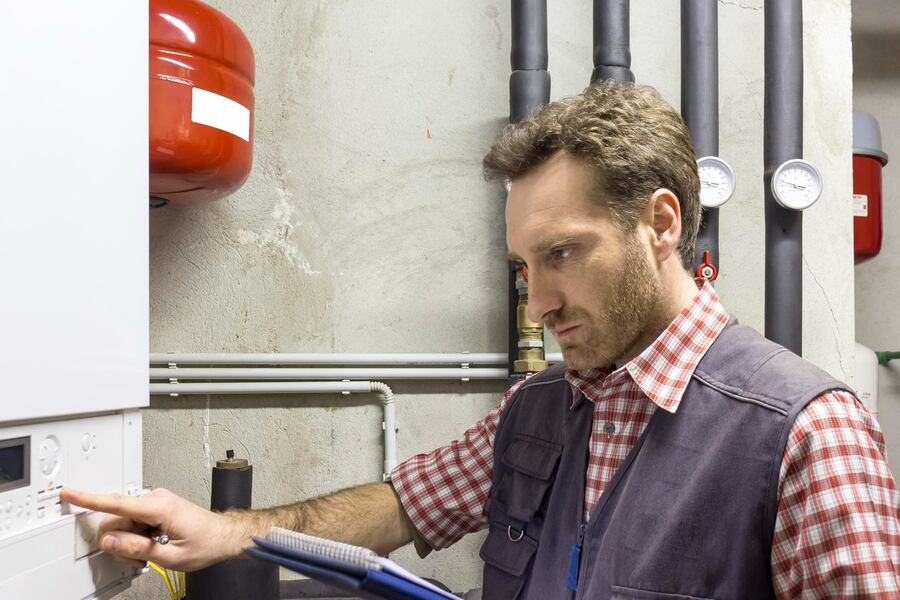Call This Wednesday to Get $50 OFF
Call us today
214-943-2424

There’s nothing like a blast of cold water to jolt you awake - and not in a good way. Frustration can build fast when you suddenly lose hot water at your home or business. While it’s tempting to panic or assume the worst, the truth is this that most hot water problems stem from a few common causes. Understanding what’s going on behind the scenes can save you time, stress, and potentially a lot of money.
In this brief article brought to you by Texas Rooter, we explore some causes of hot water outages as well as our typically suggested solutions. If you'd rather consult with a trained plumber, then call or message Texas Rooter to schedule a face-to-face meeting or onsite visit for as soon as possible.
It sounds basic, but power interruptions are one of the most common (and often overlooked) reasons why water heaters stop working. For electric water heaters, a tripped breaker or blown fuse might be what’s stopping the unit from doing its job. Gas models, on the other hand, rely on a pilot light and gas supply to stay operational. If either of those is disrupted, then the heater won’t fire up.
If you’re comfortable checking your breaker panel or gas valve, then you might be able to spot the issue. If power seems fine and your water heater is still silent, however, then it might be time to have a licensed professional take a closer look.
Electric water heaters use one or two heating elements to warm your water. If one of those burns out, then your hot water might take forever to arrive. In some cases, you’ll get a burst of hot water that turns cold in seconds. That's going to feel like a bait and switch.
You might be able to get back on schedule by swapping out the bad heating element. This isn’t necessarily a complex job, but it does require specialized tools and knowledge. A qualified plumber can test and replace it quickly. Hire Texas Rooter to avoid more serious issues down the line.
Gas water heaters depend on a steady pilot light or electric igniter to ignite the burner. If the pilot light goes out, then you’ll notice the water starts cooling quickly. While it might be tempting to try to relight the pilot yourself, it is NOT recommended. Gas lines are nothing to mess around with. It's always advisable to bring in a licensed plumber to safely inspect the system, make necessary repairs, and ensure that everything is working.
Minerals from hard water will settle at the bottom of your water heater tank over time. This sediment builds up and can act as a barrier between the heating source and the water. Unsurprisingly, this makes the heater work harder and less efficiently. In some cases, it can cause popping noises or even lead to premature failure.
Flushing and rinsing the water heater tank once or twice a year can help prevent sediment buildup, but what about if the damage is done? If sediment has already taken over, then a thorough cleanout is worthwhile. If the unit is old and corroded as well, then a water heater replacement might be the more reasonable path forward.
Nothing is forever, and a water heater is NOT an exception. Most traditional tank models have a lifespan of around 8 to 12 years. After that, problems become more frequent and efficiency drops. The lack of hot water could be a symptom of this reality.
Plumbing repair service is not going to help much when part after part wears out and breaks down. If your unit is over 12-15 years old, then it's time to look into a new unit. Modern units are not only more effective but also typically more energy efficient than older counterparts.
Still have questions or concerns? Need emergency water heater repair in Grand Prairie? Want to upgrade to a tankless water heater? The dedicated plumbers at Texas Rooter are here to help. Call or message us today to get in touch with a member of our team.
Garbage disposals are designed to make kitchen cleanup easier, not to handle everything that comes…
Read MoreThere’s nothing quite as frustrating as trying to rinse vegetables or wash dishes only to…
Read MoreThere’s something curious about how many people treat plumbing problems – especially in the
Read MoreIf you're familiar with the sump pump, then you already know how valuable it is.…
Read MoreRemember when getting hot water meant hauling buckets to the stove and waiting for them…
Read More